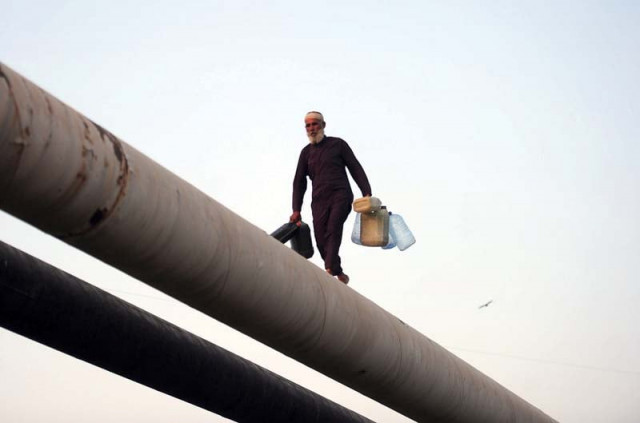Water crisis in Karachi
Karachi’s civic authorities need to plan ahead to make up for the water shortage before a crisis

One disturbing aspect driving this crisis has been the tussle between two utilities — K-Electric and the Karachi Water and Sewerage Board. The water board’s inability to clear its past dues owed to K-Electric led to power cuts at all the main pumping stations supplying water to nearly all parts of the city. The unannounced power cuts added further burden on the existing pipelines and the main one at Dhabeji broke as a result, cutting off water supply to some parts of the city. What ensued was officials blaming each other for the crisis. The water board cited a court order that prevents K-Electric from cutting power to pumping stations while the latter refused to exempt the stations from power cuts unless its dues were paid. The hue and cry the media raised may have forced K-Electric to stop the power outages temporarily. The local government department needs to ensure the water board clears all its dues, along with updating its infrastructure. It must also be ensured that K-Electric is working at full capacity and not resorting to power cuts at the pumping stations to save fuel costs. Another issue is the influence of the tanker mafia that benefits from the water crisis and charges exorbitant prices from consumers for each tanker sold. While the authorities have promised to crack down on the mafia, it remains to be seen whether its nefarious influence over the city’s water resources can be broken.
Published in The Express Tribune, May 11th, 2015.
Like Opinion & Editorial on Facebook, follow @ETOpEd on Twitter to receive all updates on all our daily pieces.















COMMENTS
Comments are moderated and generally will be posted if they are on-topic and not abusive.
For more information, please see our Comments FAQ